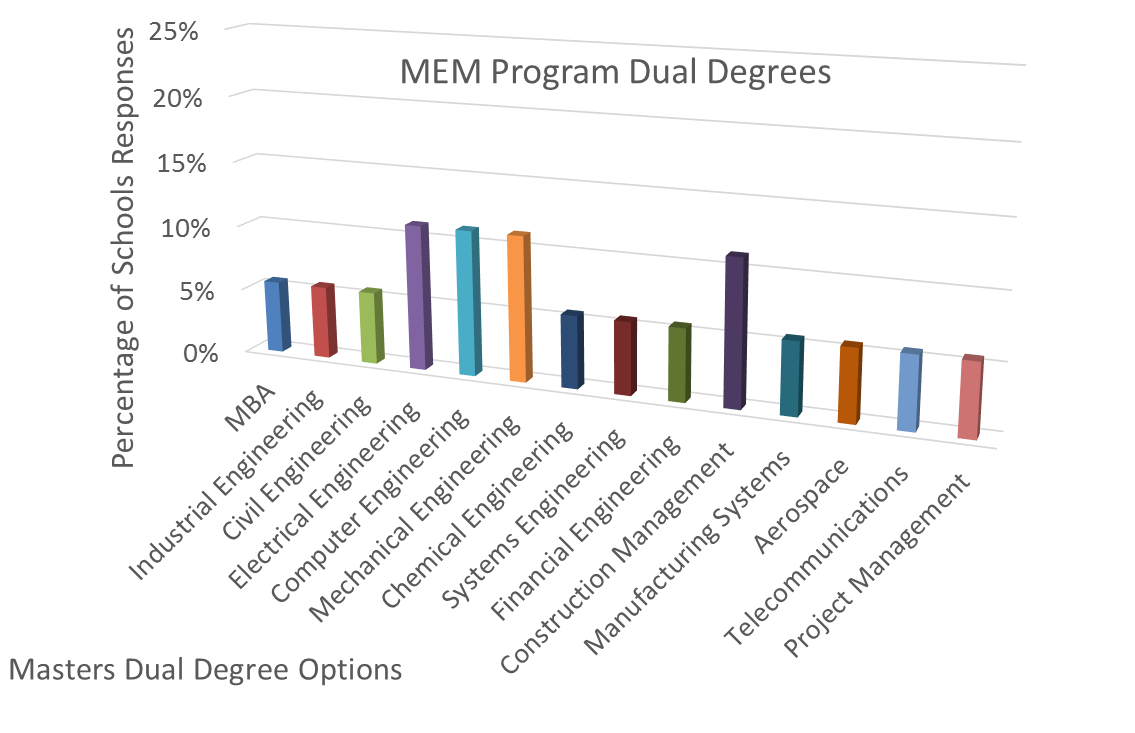
Engineering management is an application of management to engineering. There are many advantages to this profession, as well as some disadvantages. There is a lack of communication between engineers and managers, which makes it challenging to find suitable job openings. A career as an engineer manager can provide many benefits if you have the right education. Below we will discuss some of the most important aspects of this career field. If you are interested in a career as an engineer, keep reading!
Opportunities for career advancement
Engineering management has many job opportunities. It requires exceptional communication skills and business management skills. According to the U.S. Bureau of Labor Statistics there will be a 6% increase in positions held by engineers and architects in management. This growth will depend upon the expansion of various industries. Engineering management requires a bachelor's in engineering management, but some technician positions may require only an associate's degree. Many graduates choose to study MBA courses after graduating. They will gain a lot of knowledge.
An MSc is required to be qualified in engineering management. Cost analysts are responsible for analyzing costs and reporting on the results to management. Systems analysts, who analyze the business problems presented by new technologies to design the appropriate systems to address them, are other career options in engineering management. This makes them highly desirable by companies. A master's in engineering management is highly beneficial. The salary for these positions can depend on the region where you live, as well as the level of experience and skills you have.

Education requirements
An engineering management degree program provides graduates with management skills. They can be general managers, construction managers and environmental engineers or compliance managers. They can also take the Fundamentals of Engineering exam to become state licensed, though this does not include the subcategory of Engineering Manager. ASEM's website provides additional information regarding education requirements. A graduate-level program in engineering management is a great idea if you want to specialize.
Licensure requirements are a requirement for undergraduate engineering courses. In order to practice in this field, you must meet these requirements. Students can learn more about these requirements by consulting with their program director or by researching online. Aspiring engineers can advance their careers through professional certifications, board and professional licenses are important. These certifications demonstrate your expertise in engineering management by focusing on a specific niche. These certifications also show your ability to work with organizations.
Earn potential
As a graduate with an engineering degree, earning potential is high. Engineering is growing rapidly, particularly in areas like petroleum and environmental engineering that require experienced managers. U.S. News and World Report claims that engineers managers can earn $76,000-131,000 per calendar year. Although this might not sound like a lot, it's a substantial income. And the earning potential for a master's degree is even better.
Engineers who seek to make their way into engineering management are required to have a strong understanding of project management, finance, and risk assessment. They will likely be responsible for managing multiple projects, including planning and allocating resources, supply chain strategy planning, and meeting deadlines. They will need to ensure high-quality work and that their teams perform at the highest level. This is a rewarding career.

Career outlook
Engineers working in engineering management positions often supervise scientists, technicians, and engineers. According to the Occupational Outlook Handbook, employment of engineering managers is projected to grow at a rapid rate. This area of engineering often supervises the development and use of new technology and equipment. They can also help with law enforcement or government investigations related to energy and environmental issues. This field is also highly lucrative and offers a great career outlook.
Engineers also are highly sought after. The United States Department of Labor predicts that the number of engineers will increase by 10% over the next decade. This growth is dependent upon the same economic factors that impact other managers. The rise in public infrastructure spending should maintain high demand for engineering management roles, although the trend toward outsourcing may offset it. Engineer employment growth is expected to continue strong but wages could not be affected as quickly as the average.
FAQ
Engineering: What does it mean?
Engineering, in short, is the application scientific principles to make useful things. Engineers apply their scientific and mathematical knowledge to create machines, vehicles, buildings and bridges, as well as aircraft, spacecraft and robots.
Engineers may be involved in research and development, production, maintenance, testing, quality control, sales, marketing, management, teaching, consulting, law, politics, finance, human resources, administration, and many other areas.
A variety of responsibilities are available to an engineer, such as designing and building products, processes, and systems; managing projects; performing tests, inspections; analysing data; creating models; writing specifications and standards; supervising employees; and making decisions.
Engineers have the ability to specialize in a variety of fields including electrical, chemical and civil.
Some engineers focus on a specific type of engineering.
What is an Aerospace Engineer?
Aerospace engineers draw on their expertise in aeronautics as well as propulsion, robotics and flight dynamics when designing aircraft, spacecrafts satellites, rockets, missiles, and other spacecraft.
An aerospace engineer can be involved in creating new aircraft types, new fuel sources, improving existing engine performance, and even designing space suits.
Is engineering a good career?
Engineering is a fascinating profession that requires you to constantly learn and improve yourself. The opportunity to make a difference in the lives of others is yours. There are many ways you can do this.
You could design products such as cars, planes, trains, computers, mobile phones, etc. These products could be designed or built by you. Maybe you are interested in designing medical equipment. There are many possibilities.
Engineers also love working with people to solve problems and come up with solutions. Engineers are always open to learning new things and challenging situations.
Engineering is a great career choice. But it requires hard work and dedication. Engineering isn't about watching TV all day. You'll need to put in a lot of effort to get the desired results. But the rewards are worth it.
How long does it usually take to become an Engineer
There are many ways to get into engineering. Some people begin studying right after they leave school. Others choose to attend college first.
Some students will join a degree program straight from high school, whilst others will join a two-year foundation degree program.
After completing this, they might continue onto a three or four-year honors degree. They could also choose to pursue a master's program.
You should think about what you want to do after you graduate when choosing the right route. Do you plan to continue in education or enter the workforce?
It takes different stages to complete, depending on which university you go to and whether you are taking a part-time or full-time course.
But it's important that you remember that experience and how long it took you to get a particular qualification don't always have a direct correlation. So even if you only spend one year at college, it doesn't mean you'll have all the skills needed to work as an engineer.
What does it mean to be a mechanical engineer?
A mechanical engineer designs machines and tools for humans.
Mechanical engineers use mathematics, physics, and engineering principles to create practical solutions to real-world problems.
A mechanical engineer could be involved with product development, maintenance, quality control and research.
Statistics
- Job growth outlook through 2030: 9% (snhu.edu)
- 2021 median salary:$95,300 Typical required education: Bachelor's degree in mechanical engineering Job growth outlook through 2030: 7% Mechanical engineers design, build and develop mechanical and thermal sensing devices, such as engines, tools, and machines. (snhu.edu)
External Links
How To
How to use the Engineering Technical Pen
A good engineering technical pen should have:
-
A ergonomic grip
-
A comfortable writing surface (a rubberized grasp would be the best)
-
Ink cartridges are easy to find
-
Plenty of space to erase mistakes
-
Good quality nibs
-
Ergonomics for long periods of use
-
High visibility of the ink cartridge level
-
Low weight
-
Excellent price/value relationship
These tools will require you to be able to use them properly.